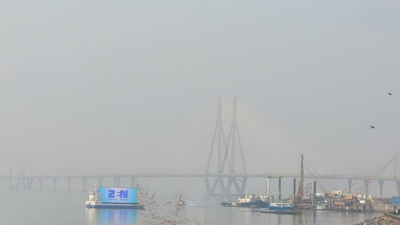On Friday, the Bombay High Court took suo motu cognizance of the alarming accumulation of garbage along Mumbai’s shoreline, particularly the presence of microplastics in fish consumed by humans.
A bench comprising Chief Justice D.K. Upadhyaya and Justice M.M. Sathaye raised concerns about the severe environmental and health implications of such pollution, especially its impact on marine life. “We have taken suo motu cognizance regarding the garbage on the Bombay seashore caused by the use of microplastics,” stated Chief Justice Upadhyaya, referencing a Times of India report based on a study by the Central Fishery Research Institute. The study highlighted the presence of micro-polythene in the intestines of fish consumed by people.
The court criticized the ineffectiveness of existing bans on microplastics, emphasizing that the pollution is affecting the entire Mumbai coastline. “There are bans, but they are ineffective. This will impact not only marine life but also the entire ecosystem of Bombay’s seashore,” remarked the bench.
The court also raised concerns about the potential flooding risks posed by the garbage. It warned that the accumulation of waste could impede the natural flow of seawater, delaying its recession during floods and potentially causing significant damage to coastal areas, including Nariman Point.
Drawing attention to the global scale of the issue, the bench cited the Great Pacific Garbage Patch, a massive accumulation of microplastics and larger trash that is roughly three times the size of France. This example underscored the far-reaching consequences of plastic pollution.
In response, Advocate General Birendra Saraf assured the court of the State government’s cooperation in addressing the issue. “We will provide all necessary assistance through the concerned departments. Marine Drive often has tonnes of garbage—it’s the sea giving back what we have polluted it with,” Saraf remarked.
The court plans to seek assistance from the Central Fishery Research Institute, the Maharashtra Pollution Control Board (MPCB), and the Union Environment Ministry to tackle the pollution problem and its impacts on marine life and public health.
This development follows a similar concern raised by a bench led by then Chief Justice Dipankar Datta in 2021 regarding the pollution along Maharashtra’s coastline.

















